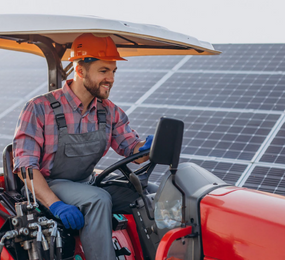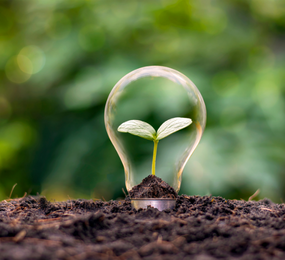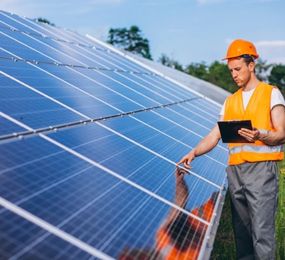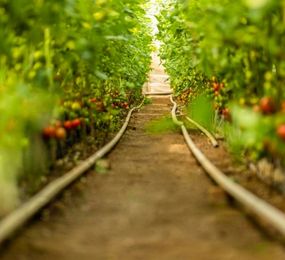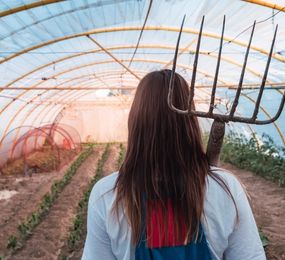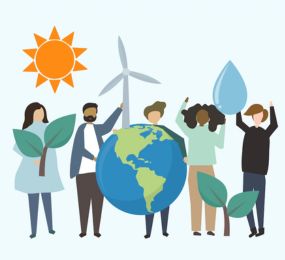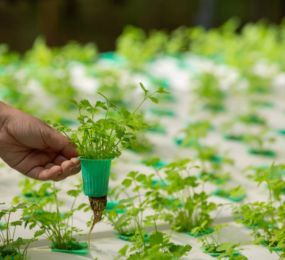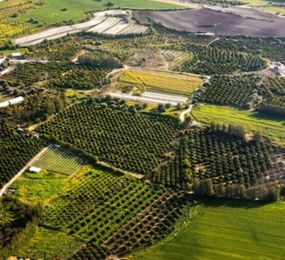The growing need for food and the increasing demand for renewable energy often clash over the same finite resource: land. But a breakthrough emerges – AgriVoltaics, the harmonious integration of solar energy and agriculture, offers an elegant solution to this land-use conflict.
A Canvas for Sustainability: Maximizing Output
Imagine a landscape dotted with solar panels, their shadows dancing across the fields below. AgriVoltaics enables both food and energy to flourish together:
-
Double the Harvest: AgriVoltaics optimizes land use by producing both crops and solar energy on the same acreage, increasing overall productivity.
-
Reduced Footprint: By maximizing land use efficiency, AgriVoltaics helps minimize the need to convert additional natural habitats or agricultural land for energy production.
-
Adaptable Approach: AgriVoltaics offers flexibility, allowing for the cultivation of a variety of crops suited to the local climate and soil conditions, ensuring continued food production.
-
Climate Resilience: By diversifying land use for both food and energy production, AgriVoltaics enhances resilience against climate change impacts and market fluctuations.
Beyond the Surface Benefits
The advantages extend beyond just increased land-use efficiency:
-
Improved Water Management: Shading from panels reduces evaporation, conserving precious water resources crucial for agriculture.
-
Enhanced Crop Yields: Certain crops may thrive in the cooler microclimate created by panels, potentially boosting yields.
-
Economic Diversification: AgriVoltaics provides farmers with an additional revenue stream from solar energy while maintaining agricultural production.
To register or learn more about the Forum please check here:http://bit.ly/3kR0v2R.
For more information and group participation, contact us: [email protected]


